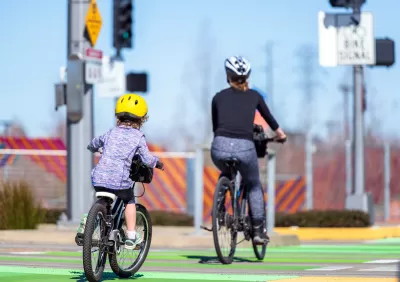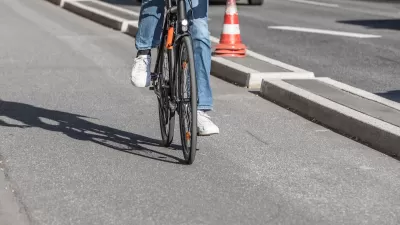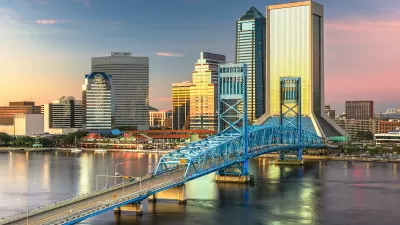A lack of safe bike and pedestrian infrastructure can drive young families away from places that don’t accommodate car-free residents.

In an essay in Streetsblog USA, Ned Resnikoff highlights how even cities with ostensibly progressive policies often fail to provide safe pedestrian and bike infrastructure, sometimes driving away residents who want access to safe, convenient bike and pedestrian infrastructure.
In famously liberal Berkeley, California, where Resnikoff lives, city officials are “consistently choosing speed and convenience for automobiles over safety for pedestrians and people on bikes,” Resnikoff says. “[T]he final straw for me came when, after several years of pitched battle, city officials killed a modest plan to improve biker safety on Hopkins Street. That is when it finally became obvious to me that the city was simply unwilling to get serious about ensuring that all residents could move about the city safely, whether they drive a car, or not.”
As Resnikoff points out, “Unfortunately, Berkeley is far from unique in that regard. As traffic violence has climbed over the past few years, a number of ostensibly progressive, climate-friendly cities have demonstrated that they are uninterested in taking even modest steps to support non-drivers.”
Resnikoff writes that this can motivate families like his, who chose to move to Emeryville for several reasons including that city’s commitment to safe bike infrastructure, to relocate or avoid certain cities. “Safe streets are, unequivocally, critical family-friendly policy. Progressive cities should be rushing to lead on this issue.”
FULL STORY: Essay: Why Even The Most Progressive Cities Are Failing Their Car-Free Residents

Americans May Be Stuck — But Why?
Americans are moving a lot less than they once did, and that is a problem. While Yoni Applebaum, in his highly-publicized article Stuck, gets the reasons badly wrong, it's still important to ask: why are we moving so much less than before?

Using Old Oil and Gas Wells for Green Energy Storage
Penn State researchers have found that repurposing abandoned oil and gas wells for geothermal-assisted compressed-air energy storage can boost efficiency, reduce environmental risks, and support clean energy and job transitions.

Placekeeping: Setting a New Precedent for City Planners
How a preservation-based approach to redevelopment and urban design can prevent displacement and honor legacy communities.

San Francisco’s Muni Ridership Grew in 2024
The system saw its highest ridership since before the Covid-19 pandemic, but faces a severe budget shortage in the coming year.

Colorado Lawmakers Move to Protect BRT Funding
In the face of potential federal funding cuts, CDOT leaders reasserted their commitment to planned bus rapid transit projects.

Safe Streets Funding in Jeopardy
The Trump administration is specifically targeting bike infrastructure and other road safety projects in its funding cuts.
Urban Design for Planners 1: Software Tools
This six-course series explores essential urban design concepts using open source software and equips planners with the tools they need to participate fully in the urban design process.
Planning for Universal Design
Learn the tools for implementing Universal Design in planning regulations.
Heyer Gruel & Associates PA
City of Moreno Valley
Institute for Housing and Urban Development Studies (IHS)
City of Grandview
Harvard GSD Executive Education
Salt Lake City
NYU Wagner Graduate School of Public Service
City of Cambridge, Maryland





























